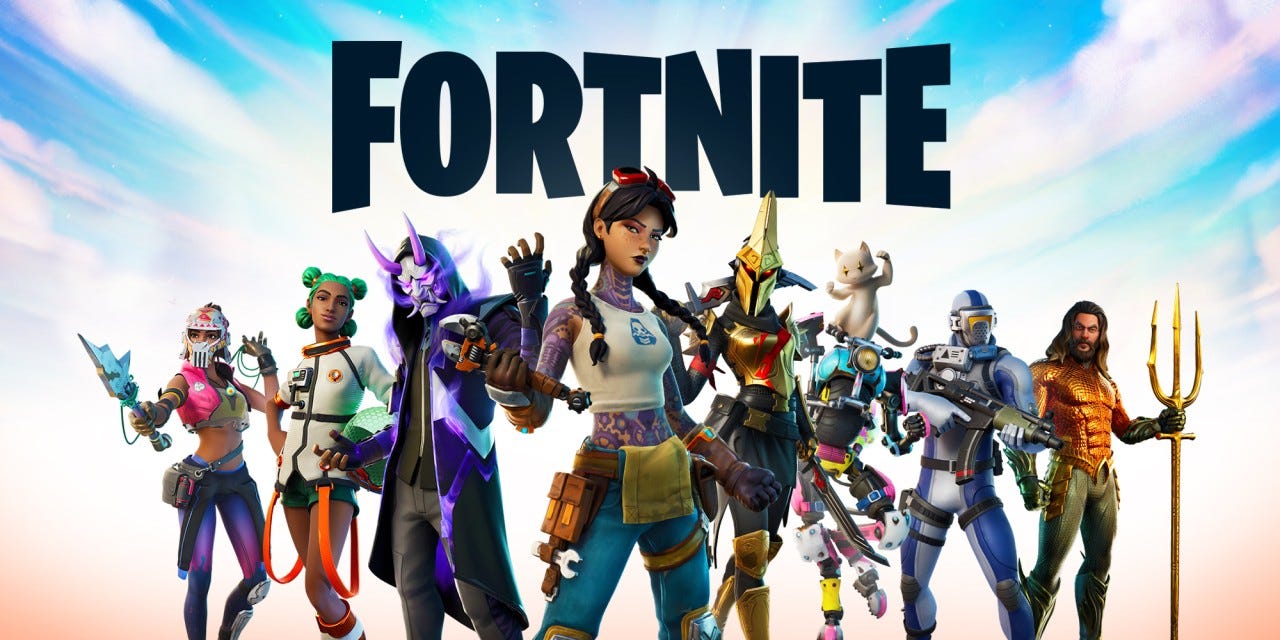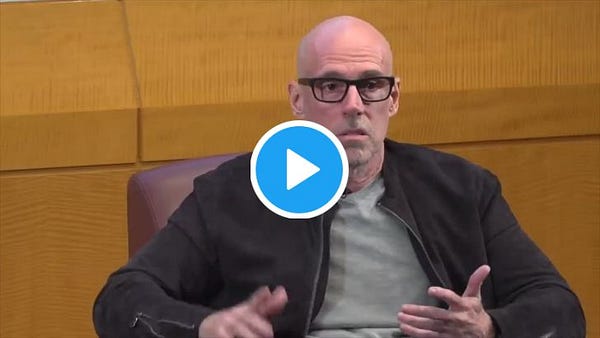
There is an extremely high likelihood that you have heard about Fortnite, in some form or another, over the past couple of years. As a quick refresher: it is the online battle-royale style video game that has swept the nation’s youth and semi-youth. The game has been a massive success and has raked in a ton of money as a result. It’s a video game that has the profit profile of a movie franchise.
But that’s nothing new - video games are an enormous business, with tons of titles and franchises having achieved wild success. Grand Theft Auto V is the highest-grossing media entity of all time, raking in a grand total of $7 billion (and counting). That’s better than any single movie ever made. But what’s so interesting about Fortnite (other than just the general gameplay and the game’s forward-thinking customer engagement), is its business model. Notably, Fortnite is a free to play. Anyone can download it on almost any device and play their hearts out. This level of accessibility has help catapult the game into the zeitgeist.
Video games are a dominant force in the media landscape. As a result, when, one of them turns into a complete phenomenon, you should pay attention. These are no longer games for teenagers, they are forms of media impacting almost every generation of American (and global) consumer at a very broad scale. And Fortnite has done it in such a unique way that we should all really be paying attention to its parent company - Epic Games, based outside of Raleigh, North Carolina.
Epic is, as you could have probably guessed, a video game developer that has been around since 1992, making a variety of games over the years. In the 90’s, Epic was making what you could almost classify as “indie games” - small and for a niche pc-gamer market. As the company grew and evolved, so did some of their games and gameplay, much like most of the video game industry during the late 90’s and early 2000’s. One of the Company’s first massive commercial successes was/is a game called Gears of War, which brought in ~$100 million for the company at it’s debut. Epic went on to develop other successful franchises, including Fortnite, which was announced initially in 2011.
Up until 2012/2013, the Company, for the most part, operated as a traditional media publisher - they put out content and required big successes to foot the bill for future projects. Although this can be extremely profitable in lean years, it can be a tough business model to make work in the long term. These difficulties encouraged the Company (and a lot of other folks in the industry) to focus on a Games-as-a-Service (GaaS) business model. What that basically means is they focused on creating revenue opportunities even after the gaming title was sold and distributed. In order to do this effectively, Epic decided to sell a big chunk of their business to Tencent (48.5%), the Chinese tech conglomerate with deep pockets and deep experience with the GaaS business model.
This equity infusion allowed Epic to really try and figure out the GaaS business model. From about 2012 - 2017, the company spent a lot of time working out kinks, trying to figure out how to make this lucrative, yet pioneering business model work. Epic certainly wasn’t the first game studio to make this attempt, but they were on the forefront. After releasing Fortnite Battle Royale in 2017, the game quickly achieved massive popularity, and reportedly had collected ~$1 billion in revenue by July 2018 through microtransactions. What does that mean, exactly? Players spend money on in-game purchases, like skins for their avatars or the battle pass (a subscription payment), which provides for improved gaming experience. Notably, none of these microtransactions really enhance a player’s ability to compete in the game - instead they are almost purely cosmetic. And people still buy them - this is something most game studios hadn’t quite figured out yet.
But the company doesn’t just develop video games, they also are the proprietors of the Unreal Engine - their video game engine that powers their games. The Company has been licensing the Unreal Engine out to other game development studios since the 90’s. (For those asking what a game engine is exactly, think of it like a platform for developing video games - the Substack to this newsletter,if you will). Although I am ill-equipped to truly explain how impressive Epic’s engine is, the people who do know believe it is aptly named. Unreal levels of quality and performance permeate Epic’s hosting product.
Something interesting about the Unreal Engine is that when Epic decided to switch to a GaaS model for their games, they also decided to switch the business model for the Unreal Engine as well. Instead of just licensing out their product for a fee, they decided to let developers utilize it for free, in exchange for a ~5% royalty on games developed with the engine.
There are a couple of things I love about that move: first, it allows the company to better participate in the massive upside that awaits the gaming industry. There are going to be tons of great games developed over the course of the next 20-30 years, and hopefully Epic will have a chance to have piece of that pie, even if they don’t develop those games themselves. Secondly, it encourages more folks, even smaller developers, to get into the development game. I have written about this in the past, but I think that there will only be more and more small video game developers, making breakout hits and raking in capital. Epic is poised to take advantage of this trend very well.
Recently, Epic also created a platform for selling games - Epic Unreal Games - which effectively acts as a place to buy games across a multitude of different systems. This is certainly not a novel concept - plenty of other digital storefronts for video games exist. But most of them charge ~30% of the purchase price for a game, whereas Epic charges ~12%. And they also waive the 5% royalty of game purchases for those who are using the Unreal Engine to develop / power their game.
Basically, Epic is just trying to get it’s product, or a derivation of its product into as many video-gaming households as possible. Where it goes from there, that’s the real question. So it might seem like they are giving their product away for free, but in reality, they are trying to make their product ubiquitous - and they are doing a pretty good job at that. Once they are in every game and every household, they will have more revenue options than they know what to do with. The company is purportedly valued at $17 billion as of earlier this Summer - that might be a good price if they are going to eat the video game world whole.
Friday Links
Epic used its playbook for Fortnite events against Apple and Google
This story is the reason I wrote this post this week. I didn’t touch on it because I am still not sure how it fits into Fortnite’s plan, but it’s something everyone should keep their eyes on.
Invest Like the Best: Matt Ball
This pod goes deeper than I could on Fortnite - Matt Ball is probably the smartest media essayist on the planet right now and his assertions about Epic being the leading horse for the multiverse race are probably valid. Epic doesn’t just want to be the most popular game, they want to be every game.
Anytime a bearcat does anything cool, you are going to probably hear about it here, even if it has nothing to do with tech, finance, etc. Jim Herman has had such a crazy career, he’s a great reminder about the value of persistence and not giving up.
Finmeme of the week:





